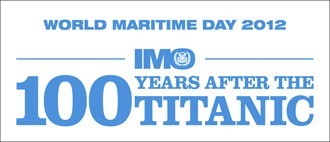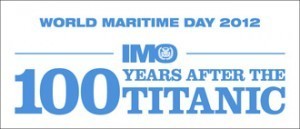Was The World’s ‘Northern-Most Island’ Erased From Charts?
by Kevin Hamilton (University of Hawaii) In 2021, an expedition off the icy northern Greenland coast spotted what appeared to be a previously uncharted island. It was small and gravelly,...




“A century after the Titanic was lost in the icy waters of the North Atlantic, the IMO is striving to ensure continual improvement in safety at sea. Its work is as important now as ever” – UN Secretary-General Ban Ki-moon, 27 September 2012
One of the consequences of the sinking, in 1912, of the Titanic, in which more than 1,500 people lost their lives, was the adoption, two years later, of the first International Convention for the Safety of Life at Sea (the SOLAS Convention). The 1914 version of the Convention was gradually superseded, respectively, by SOLAS 1929, SOLAS 1948, SOLAS 1960 (the first adopted under the auspices of IMO, then known as IMCO) and SOLAS 1974. SOLAS 1974 is still in force today, amended and updated many times.
This year’s World Maritime Day theme will provide an opportunity to take stock of the developments in maritime safety since that disaster and to examine which areas of ship safety should be given priority in the years to come.
From IMO:
Today (27 September 2012) marks the 35th celebration of World Maritime Day. This year’s theme is: “IMO: One hundred years after the Titanic”, a theme chosen by the International Maritime Organization (IMO) to reflect on the safety of passenger shipping today, and into the future, on the centenary anniversary of the Titanic disaster.
In his World Maritime Day message, IMO Secretary-General Koji Sekimizu recalled that the Titanic tragedy, on 14 April 1912, which transformed in a few short hours the world’s most celebrated ship into a name forever associated with disaster, prompted the major shipping nations of the world, at that time, to take decisive action to address maritime safety. This led to the adoption, two years later, of the first-ever International Convention on Safety of Life at Sea and, ultimately, to the establishment of IMO itself.
“Today, much updated and revised, SOLAS is still the most important international treaty addressing maritime safety,” Mr. Sekimizu said.
“This year, as we look back on that pivotal disaster 100 years ago, I urge IMO Member Governments and the shipping industry as a whole to refresh their determination to improve and enhance the safety of passenger shipping today, and into the future,” he said.
Mr Sekimizu used his message to announce that IMO is planning to hold a two-day symposium at IMO Headquarters, in London, in conjunction with IMO’s Maritime Safety Committee next June, on the “Future of Ship Safety”.
The idea is to go beyond the current safety issues under the Committee and rigorously consider the future of maritime safety. The objective is for the discussions to contribute to the future advancement of the Organization’s maritime safety policy.
Mr. Sekimizu referred to the comprehensive body of international conventions, supported by literally hundreds of guidelines and recommendations that, between them, govern just about every facet of the shipping industry – from the drawing board to the scrapyard, developed by IMO, which have led to shipping today to be safer, cleaner, more efficient and more secure than at any time in the past.
“But each new generation of vessels brings fresh challenges and, regrettably, accidents still occur, reinforcing the need for continual improvement. Our efforts to promote maritime safety, not least of passenger ships, will never stop. We should respond quickly to accidents and we must be proactive,” he said.
Mr. Sekimizu pointed out the unique nature of the passenger and cruise ship industry’s “cargo”.
“The lives of thousands of people are in the hands of the ship’s management, the captain and crew and the operating staff. I therefore hope that this sector, in particular, will take the opportunity to lead the way, because “safety” is its main product – not comfort, entertainment or leisure. Without safety, the industry will not survive, let alone sustain its growth; and real safety does not result simply as a consequence of regulation-compliance,” Mr. Sekimizu said.
“Some 20 years ago, the International Safety Management Code, adopted by IMO, represented a step-change in the establishment of a safety culture in shipping. The time has now come to generate another step-change. This will not be achieved through legislative measures alone. We must generate a new impetus in shipping to go beyond compliance with regulations and explore industry-wide mechanisms to ensure the safety culture is embedded throughout the entire industry,” Mr. Sekimizu said.
United Nations Secretary-General Ban Ki-moon also issued a message for World Maritime Day, reflecting on the Titanic tragedy and noting that each successive generation brings new challenges.
“Thanks largely to the IMO regulatory regime, shipping today is safer and more environmentally friendly than it has ever been. New regulations for passenger ships were adopted by the IMO in 2006 and entered into force in 2010. They ensure that all new passenger vessels are constructed to the highest possible standards. A century after the Titanic was lost in the icy waters of the North Atlantic, the IMO is striving to ensure continual improvement in safety at sea. Its work is as important now as ever,” Mr. Ban said.
More information on today’s World Maritime Day Celebration, check out the International Maritime Organization’s website.
Join the gCaptain Club for curated content, insider opinions, and vibrant community discussions.


Join the 105,882 members that receive our newsletter.
Have a news tip? Let us know.
Access exclusive insights, engage in vibrant discussions, and gain perspectives from our CEO.
Sign Up




Maritime and offshore news trusted by our 105,882 members delivered daily straight to your inbox.



Essential news coupled with the finest maritime content sourced from across the globe.
Sign Up